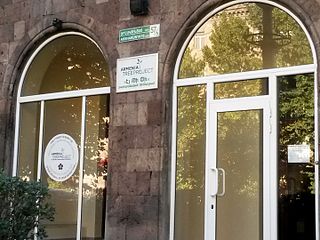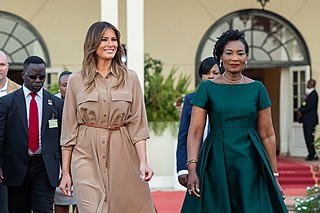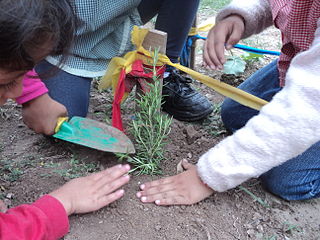
Armenian Environmental Network (AEN), a project of Earth Island Institute (EII), is a non-profit organization headquartered in Washington, D.C. United States, with an office in Yerevan, Armenia.

Armenian Environmental Network (AEN), a project of Earth Island Institute (EII), is a non-profit organization headquartered in Washington, D.C. United States, with an office in Yerevan, Armenia.
AEN was founded in 2007 as a response to a lack of environmental information available to Armenians in the Diaspora on environmental problems in Armenia. The Founder, Ursula Kazarian, and the Executive Director, Serda Ozbenian, are based in the United States. The Armenia office includes Armine Sargsyan, Armenia Office Director, and Armenuhi Nikoghosyan, Project Manager.
AEN serves a dual mission to: (1) Increase information sharing and distribution among Armenians in Armenia, the Armenian Diaspora and the wider conservation community; and (2) Facilitate partnerships through the responsible involvement of Diasporan and international resources to promote sustainable development in Armenia. This way, AEN is active in environmental problems in Armenia, and also creates a dialogue between Armenia and the Diaspora.
In Armenia, AEN focuses on waste management through project implementation and education programs. The Vardenis Environmental Education Initiative (VEEI), part of AEN's Waste Management Program, [1] was implemented with the goal of bringing environmental education into the classroom. Teachers of the Vardenis sub-region were trained on teaching methodologies, basic ecology, and waste management using the AEN Teacher's Guide, specifically developed for use in rural Armenia. Other projects include constructing Armenia's first modern landfill in the city of Berd. AEN also holds Youth Forums, which are designed to inform Armenia's youth from regions outside of Yerevan on environmental issues.
In the United States, AEN is working to expand its activities in cities with strong Armenian-American communities, with the hope to one day also expand to other Diasporan communities outside the U.S. AEN has organized environmental panel discussions in the U.S. since 2007, with topics ranging from deforestation and illegal logging to public health, water and sanitation, energy security, and the role of transparency in environmental work.

Environmental education (EE) refers to organized efforts to teach how natural environments function, and particularly, how human beings can manage behavior and ecosystems to live sustainably. It is a multi-disciplinary field integrating disciplines such as biology, chemistry, physics, ecology, earth science, atmospheric science, mathematics, and geography.

Hamazkayin, short for Hamazkayin Armenian Educational and Cultural Society, is a major cultural organization of the Armenian Diaspora. In addition to organizing cultural events in local Armenian communities, the Hamazkayin runs three schools; publishes books through its printing press; maintains bookstores; publishes a monthly literary magazine, Pakin, organizes the Hamazkayin Forum and has established H-Pem of their Hamapem establishment. Hamazkayin is supported by a wide segment of the Armenian community and encourages active participation to the events sponsored by the community. Hamazkayin sponsors and organizes many cultural events; such as concerts by renowned artists, scientific seminars, film festivals, literary lectures and book reviews. In the United States, the Hamazkayin Armenian Educational and Cultural Society was established as a non profit organization in 1970.
Education in Armenia is held in particular esteem in Armenian culture. Education developed the fastest out of the social services, while health and welfare services attempted to maintain the basic state-planned structure of the Soviet era, following Armenia's independence in 1991. Today, Armenia is trying to implement a new vision for its higher education system while pursuing the goals of the European Higher Education Area. The Ministry of Education and Science oversees education in the country.

Yerevan Brusov State University of Languages and Social Sciences, is a public university in Yerevan, the capital of Armenia, operating since 1935. It is named after the Russian poet and historian Valery Bryusov since 1962.

The Armenian Youth Federation (AYF) is the youth organization of the Armenian Revolutionary Federation. Founded in 1933, the AYF became a global Armenian organization and stands on five pillars that guide its activities: Educational, Hai Tahd, Social, Athletic and Cultural. Moreover, the AYF promotes social democratic values and a fraternal attitude of respect for ideas and individuals amongst its membership. Unity and cooperation are essential traits that allow members of the organization to work together to realize the AYF's objectives. The AYF is a full member of International Union of Socialist Youth and Young European Socialists.

Armenia Tree Project (ATP) is a non-profit organization based in Watertown, Massachusetts, United States, and Yerevan, Armenia, founded in 1994 by Carolyn Mugar to promote Armenia's socioeconomic development through reforestation. Since its founding, the organization has planted more than 6.5 million trees in communities throughout Armenia.

Vardenis is a town in the Vardenis Municipality of the Gegharkunik Province of Armenia. It is located in the valley of the Masrik River, on the territory of the Masrik artesian basin at 2,006 metres above sea level, near the southeastern shores of Lake Sevan. It is 170 kilometres by road east of the capital Yerevan, and 75 kilometres southeast of the provincial centre Gavar. The administrative territory of Vardenis comprises 3,006 hectares, of which 736 hectares is occupied by the town itself. Vardenis obtained its status as an urban settlement in 1995. As of the 2011 census, the population of the town was 12,685. However, as per the 2016 official estimate, the population of Vardenis is 12,600.

{{Use American English {date=February 2022}}

Garden-based learning (GBL) encompasses programs, activities and projects in which the garden is the foundation for integrated learning, in and across disciplines, through active, engaging, real-world experiences that have personal meaning for children, youth, adults and communities in an informal outside learning setting. Garden-based learning is an instructional strategy that utilizes the garden as a teaching tool.
Environmental adult education is recognized as a "hybrid outgrowth of the environmental movement and adult education, combining an ecological orientation with a learning paradigm to provide a vigorous educational approach to environmental concerns."

Armenia is underdeveloped in its waste management and recycling activities.
A sustainability organization is (1) an organized group of people that aims to advance sustainability and/or (2) those actions of organizing something sustainably. Unlike many business organizations, sustainability organizations are not limited to implementing sustainability strategies which provide them with economic and cultural benefits attained through environmental responsibility. For sustainability organizations, sustainability can also be an end in itself without further justifications.
Project Learning Tree (PLT) is an environmental education program for teaching children about trees and forests using hands-on activities. It was created in 1976, after passage of the first National Environmental Education Act in 1970 and celebration of the first Earth Day in 1970, raised the profile of environmental education in the United States.
The TUMO Center for Creative Technologies is a free education program for teenagers aged 12–18 specializing in technology and design, with education being provided at various TUMO centers and hubs.
urbanlab is a Yerevan-based independent urban think-do-share lab, aimed to promote democratization of urban landscape toward sustainable development in its broader understanding.

Armenia was admitted into the United Nations on 2 March 1992, following its independence from the Soviet Union. In December 1992, the UN opened its first office in Yerevan. Since then, Armenia has signed and ratified several international treaties. There are 20 specialized agencies, programs, and funds operating in the country under the supervision of the UN Resident Coordinator. Armenia strengthened its relations with the UN by cooperating with various UN agencies and bodies such as the International Monetary Fund, the World Bank, the World Food Programme, and with the financial institutions of the UN. Armenia is a candidate to preside as a non-permanent member of the UN Security Council in 2031.

Climate change education (CCE) is education that aims to address and develop effective responses to climate change. It helps learners understand the causes and consequences of climate change, prepares them to live with the impacts of climate change and empowers learners to take appropriate actions to adopt more sustainable lifestyles. Climate change and climate change education are global challenges that can be anchored in the curriculum in order to provide local learning and widen up mindset shits on how climate change can be mitigated. In such as case CCE is more than climate change literacy but understanding ways of dealing with climate

Environment and Ecology Bureau is one of the fifteen policy bureau of the Government of Hong Kong. The agency was established on 1 July 2022. The current Secretary for Environment and Ecology is Tse Chin-wan.
Repat Armenia Foundation, is a non-governmental, non-profit organization dedicated to promoting repatriation to Armenia and supporting the integration of individuals and families into Armenian society.